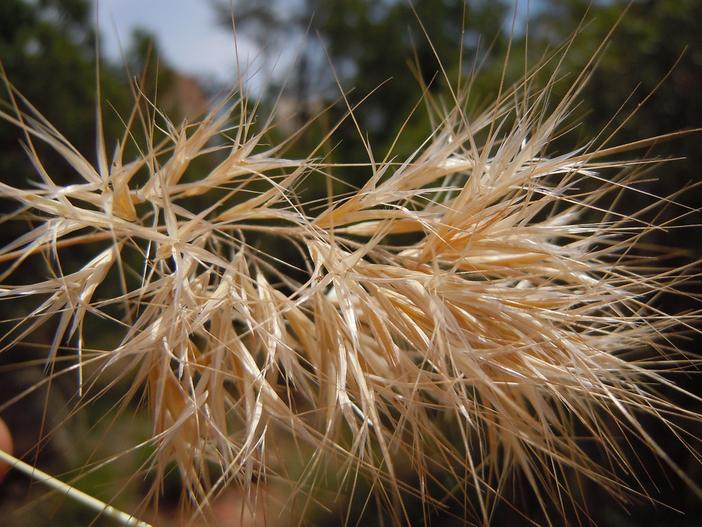Compact Brome
(Bromus rubens)
Compact Brome (Bromus rubens)
/
/

Matt Lavin
CC BY-SA 2.0
Image By:
Matt Lavin
Recorded By:
Copyright:
CC BY-SA 2.0
Copyright Notice:
Photo by: Matt Lavin | License Type: CC BY-SA 2.0 | License URL: https://creativecommons.org/licenses/by-sa/2.0/ | Uploader: Matt Lavin | Publisher: Flickr

































Estimated Native Range
Summary
Bromus rubens, commonly known as compact brome, is a winter annual grass native to Mediterranean regions, including southern and western Europe and North Africa. It has been introduced and naturalized in various parts of the world, including North America, where it is primarily found in California, Arizona, and Oregon. This grass typically grows to a height of 8-28 inches and features flat, slightly hairy leaves. Its erect, ellipsoid panicles bear spikelets that vary in color from green to purplish-red, adding a touch of color to the landscape when it flowers from early winter to spring. The showiness of its flowers is modest, but they can provide visual interest in a winter garden.
Compact brome is often found in disturbed sites such as waste areas and road verges, where it can establish quickly. It is considered invasive in some regions outside its native range due to its ability to spread rapidly and compete with native vegetation. Gardeners should be cautious and check local regulations before planting. In cultivation, it requires minimal care, thriving in full sun to partial shade and adapting to a wide range of soil types, though it prefers well-drained soils. While it is not commonly used in formal garden settings, it can be utilized for erosion control or as a temporary ground cover in restoration projects.CC BY-SA 4.0
Compact brome is often found in disturbed sites such as waste areas and road verges, where it can establish quickly. It is considered invasive in some regions outside its native range due to its ability to spread rapidly and compete with native vegetation. Gardeners should be cautious and check local regulations before planting. In cultivation, it requires minimal care, thriving in full sun to partial shade and adapting to a wide range of soil types, though it prefers well-drained soils. While it is not commonly used in formal garden settings, it can be utilized for erosion control or as a temporary ground cover in restoration projects.CC BY-SA 4.0
Plant Description
- Plant Type: Grass
- Height: 0.3-1.75 feet
- Width: 1-1.5 feet
- Growth Rate: Rapid
- Flower Color: N/A
- Flowering Season: Spring, Summer, Fall
- Leaf Retention: Deciduous, Semi-deciduous
Growth Requirements
- Sun: Full Sun, Part Shade
- Water: Low, Medium
- Drainage: Fast, Medium, Slow
Common Uses
Erosion Control, Low Maintenance
Natural Habitat
native to Mediterranean regions, including southern and western Europe and North Africa
Other Names
Common Names: Red Brome, Foxtail Chess, Madrid Brome, Compact Brome
Scientific Names: , Bromus rubens, Anisantha rubens, Bromus kerkeranus, Bromus madritensis subsp. rubens, Bromus madritensis subsp. rubens, Bromus madritensis subsp. rubens, Bromus madritensis var. rubens, Bromus rigidus, Bromus rubens subsp. eurubens
GBIF Accepted Name: